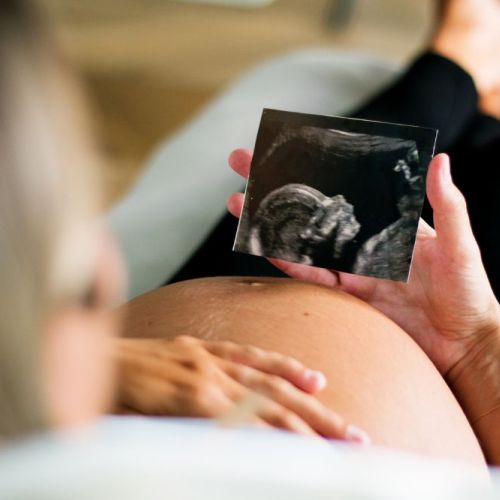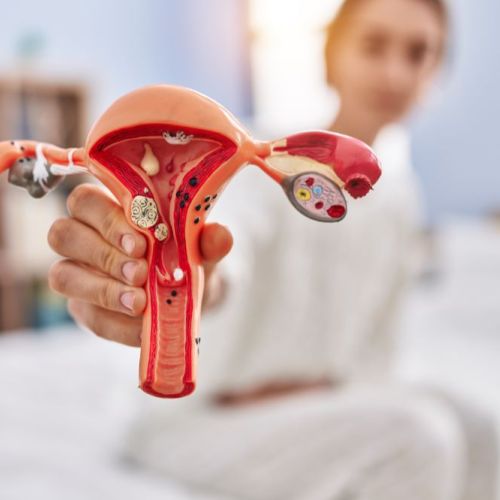Why Your IVF Failed and How We Can Help

Infertility can be extremely frustrating and debilitating on its own, but when in-vitro fertilization (IVF) fails to result in pregnancy, you may feel devastated.
Although IVF is a fantastic option for infertile couples, the reality is that only 26% of IVF cycles actually produce a baby. If you’re older than 40, this percentage is even lower.
Don’t let these statistics discourage you. A failed IVF attempt does not end your attempt to create your family. Our team at the California Center for Reproductive Health offers the most up-to-date infertility interventions and evaluations. We have advanced infertility treatments that can still help if IVF failed. Here’s how.
How IVF works
IVF involves fertilizing a woman’s egg with her partner’s sperm in a laboratory. The embryos develop in the lab and when determined viable, they’re implanted into a woman’s uterus, with the hope that they attach and grow into a healthy baby.
Why IVF fails
An IVF cycle may fail due to any number of reasons. Here are explanations of some of the more common reasons.
Embryo quality
An IVF cycle most often fails due to the quality of the embryo implanted. Although we do a thorough evaluation of the embryo’s health before implantation, it may have defects that prevent it from growing.
Age of the eggs
The age of the eggs used to create the embryo in the lab matters, too. As a woman ages, the quality and quantity of viable eggs decreases.
Ovarian function
Prior to egg harvesting, a woman undergoes hormone treatments that stimulate her ovaries to produce multiple eggs. If you’re older than 37 or have high levels of follicle-stimulating hormone, you may have trouble producing enough eggs, and IVF may fail.
Chromosomal abnormalities
A common reason why pregnancies fail early on is due to chromosomal abnormalities. Even women who’ve conceived naturally can suffer chromosomal abnormalities that result in miscarriage.
Sometimes these can be detected in the lab, and embryos with such abnormalities are not used during the IVF process. But, if such an embryo is used, it may not implant correctly in the uterus of could result in miscarriage. Sometimes, an IVF round fails even before the attempt to transfer the embryo to a woman’s uterus occurs because all of the embryos that were created have chromosomal abnormalities.
Lifestyle choices
Smoking is a definite poor lifestyle choice when you’re undergoing IVF. Smokers usually need more IVF cycles to successfully conceive and are more likely to experience a miscarriage. Being underweight or overweight also affects your IVF treatment outcome.
Implantation issues
Sometimes the uterus isn’t receptive to implantation. While this is sometimes due to issues with the embryo, it can also have to do with the status of your uterine lining. If the IVF hormones used prior to implantation are out of balance, your uterus may not be sticky enough or at the right point in its cycle to accept an embryo.
Endometriosis
Endometriosis is an overgrowth of uterine lining. The tissue often grows outside of the womb and affects your reproductive organs. Some women have symptoms associated with endometriosis, such as irregular bleeding or cramping, but other women aren’t aware they have it until a complication with IVF occurs.
How we can help
For older women who are concerned about their egg quality, using donor eggs greatly increases the chance of success with IVF. We’re happy to discuss this option with you at a consultation.
If your ovaries are at risk of not producing enough eggs, our team can work with you to evaluate your ovarian reserve and discuss any changes that will need to be made to your fertility medications for future IVF rounds.
We may recommend lifestyle changes to improve your chances of success. For instance, if you smoke, you should quit at least three months before your next IVF cycle. Also, it’s helpful to achieve a healthy weight to optimize your chances of successful IVF.
The doctors may also recommend an evaluation of your uterine lining if it seems you’re having trouble with implantation. They may be able to adjust your IVF hormone treatments to optimize progesterone timing and improve your uterine receptivity.
Dr. Mor and Dr. Woo may suggest a ReceptivaDx test that detects inflammation of the uterine lining. Inflammation is most commonly associated with endometriosis, one of the leading causes of infertility and failed implantation.
We can do a biopsy of suspicious tissue if endometriosis is suspected in order to confirm a diagnosis. Endometriosis may be removed with minimally invasive surgery and a course of antibiotics to reduce inflammation and improve chances of implantation in a future IVF cycle.
Disappointment can’t even begin to explain how you feel after a failed IVF cycle. But you don’t have to give up on your dreams of a family. Take advantage of the expertise and compassion of our infertility experts at California Center for Reproductive Health.
Call one of our offices in Encino, Santa Monica, Valencia, Alhambra, and West Hollywood, California, to set up a consultation and evaluation. Alternatively, you can schedule an appointment online.



